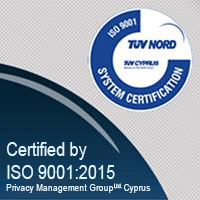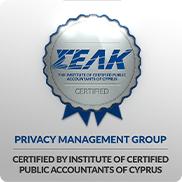The 183-Day Rule in Dubai
Understanding the Topic and Its Relevance
Tax residency is a crucial aspect when it comes to managing and planning international assets and income. For individuals operating in multiple countries or frequently traveling across borders, understanding the tax regulations of different jurisdictions is vital.

A significant change in the international tax landscape pertains to the 183-day rule in Dubai, which was replaced by a 90-day rule in 2023. In this article, we will explore the implications of this rule change and its impact on expatriates and businesses in Dubai.
The Transition from the 183-Day Rule to the 90-Day Rule
Historically, Dubai and the UAE adhered to the 183-day rule, which stipulated that individuals needed to spend at least 183 days within the UAE in the preceding year to obtain an official tax certificate confirming their tax residency.
However, in 2023, this requirement was shortened to a 90-day minimum annual stay. This shift aims to make Dubai an even more attractive destination for global entrepreneurs and expatriates by reducing the time commitment required to establish tax residency.


Temporary Absence Abroad
The 90-day rule does not constitute a mandatory prerequisite for obtaining or retaining a residency permit. To maintain the validity of a Dubai residence visa, however, the visa holder should not leave the UAE for more than 179 consecutive days.
This flexibility allows residents to travel extensively while still complying with the residency requirements, making it easier for international businesspeople to manage their affairs without jeopardizing their visa status.
The Tax Certificate in Dubai
A tax certificate is a document that confirms an individual or entity’s legal tax status within a country, indicating compliance with local tax regulations and contributions to the national budget.
In Dubai, obtaining a tax certificate provides a safeguard against potential double taxation, especially when returning to one’s home country. Although Dubai does not impose personal income taxes, the tax certificate serves as proof of residency and can prevent tax complications with other jurisdictions.
Why Is a Tax Certificate Necessary?
A tax certificate is crucial for avoiding double taxation and ensuring compliance with international tax laws. For example, individuals who may return to their home country might face additional taxation without proper documentation of their tax residency in Dubai.
With a tax certificate, they can demonstrate their legitimate tax status, thereby simplifying their tax obligations and providing peace of mind.
Proving Tax Residency in Dubai
Although Dubai does not tax personal income, the Ministry of Finance issues an official and internationally recognized tax certificate upon request.
To obtain this certificate, individuals must adhere to the 90-day rule (previously 183 days), providing documentation of their entry and exit dates to confirm their presence in the UAE. This requirement ensures that residents genuinely maintain a substantial connection to Dubai, reinforcing their tax residency status.
Alternatives to the 90-Day Rule in Dubai
Dubai and the UAE face competition from other jurisdictions like Cyprus and Monaco, each offering unique tax benefits.


Cyprus: The 60 Days Rule
Explaining Cyprus’s 60-day residency requirement, its advantages, and how it compares to Dubai’s 90-day rule.
Cyprus offers a 60-day rule for tax residency, making it even more flexible than Dubai’s 90-day requirement. To qualify, individuals must spend at least 60 days in Cyprus, not be tax residents in any other country, and meet additional criteria such as having a permanent address in Cyprus or engaging in business activities.
This option is particularly appealing for those looking for a shorter stay while still benefiting from favorable tax conditions.
Monaco: A Less Attractive Option
Discussing why Monaco has become less appealing for tax residency compared to Dubai and Cyprus.
Monaco, once a prime destination for tax residency, has become less attractive due to its stringent requirements and high cost of living. Unlike Dubai and Cyprus, Monaco requires individuals to reside in the country for the majority of the year, making it less flexible.
Additionally, the high cost of property and living expenses in Monaco can be prohibitive for many. Consequently, Dubai and Cyprus are often preferred for their more relaxed residency rules and lower costs.
Maximizing Flexibility and Benefits
Combining a personal Non-Dom status in Cyprus with a UAE Free Zone business can offer unparalleled global advantages.
This strategic approach allows individuals to benefit from favorable tax conditions in both jurisdictions, optimizing their financial and business operations. By leveraging these opportunities, individuals can enhance their international presence and secure significant tax savings.
Key Takeaways and Actionable Insights
The transition from the 183-day rule to the 90-day rule in Dubai marks a significant shift in the UAE’s approach to attracting international talent and businesses.
This change simplifies the process of establishing tax residency, making Dubai an even more attractive destination for expatriates and entrepreneurs. To navigate these changes effectively, it is advisable to seek guidance from professional advisors or consult with experts, ensuring that you make informed decisions and fully capitalize on the dynamic opportunities available in Dubai.
If you are interested in learning more about this topic, consider reaching out to professional advisors or consulting with us to make informed decisions and leverage the numerous possibilities this dynamic market offers.







